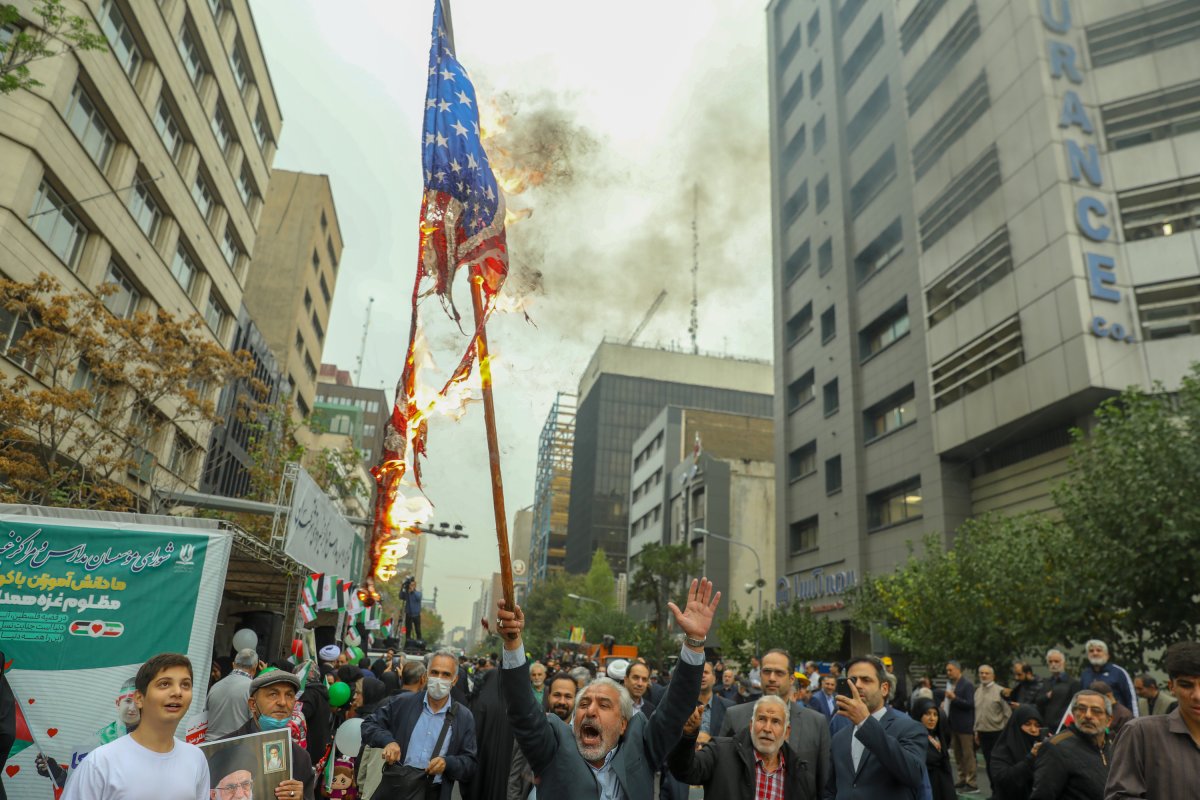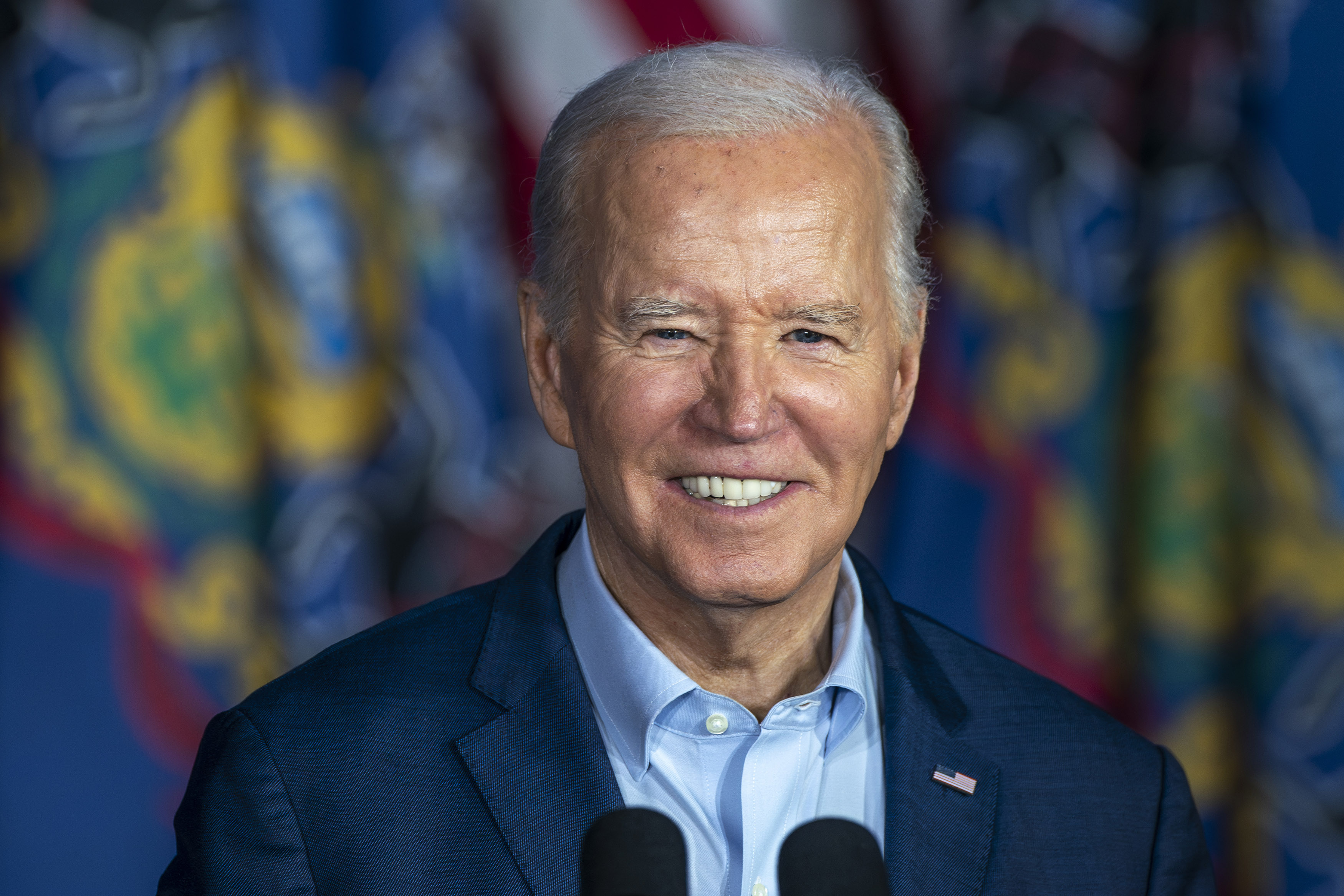It was bound to happen eventually. After over 170 attacks against U.S. military installations across the Middle East since October 2023, on Sunday a drone launched by Iran-backed militants in Syria struck a U.S. supply and logistics site in Jordan. Three American servicemembers were killed and more than 30 were injured. Along with two Navy SEALs lost on a secret mission in Yemen last week, the fatalities are the first to be suffered by U.S. forces since Hamas' October 7, 2023, attack on Israel. Dozens of U.S. servicemen had been severely injured in such attacks over the past few months.
In Washington, the ossified policy elite is agonizing over how to respond. Like an addled old man yelling at kids to get out of his yard, President Joe Biden has repeatedly warned of retaliation against Iran, which actively supports a dozen militant groups across the region, including Hamas. U.S. action, however, has been limited to desultory air strikes against Iranian clients in Syria, Iraq, and Yemen. Thus far, no American response has proved decisive enough to stop the attacks or to dissuade Iran from stepping up its active military presence in the Persian Gulf. The hesitancy and haphazardness of Biden's responses have only emboldened Iran and its proxies to launch ever more daring attacks, now with fatal results.
In its timid approach to Iranian aggression, Biden's national security team appears to be following the mystifying playbook of Barack Obama, which held that Iran could launch proxy attacks without fear of war, but insisted that Iran itself could never be attacked, paradoxically due to fear of war. The controlling factor is the administration's hope—again mirroring Obama's failed strategy—that Iran's Islamist theocracy can be goaded into showing restraint through a combination of kid-gloves treatment in the field and high-value hard currency payments, either in cash or through the release of frozen assets.

"The Biden Administration has been pursuing a strategy of strategic engagement with Iran, in the hope of achieving two goals," says Michael Gfoeller, a retired U.S. ambassador who served for many years in the Middle East, including as policy adviser to U.S. Central Command. These goals, he told me, are "reviving the Obama-era Iranian nuclear agreement (Joint Comprehensive Plan of Action, or JCPOA) and moderating Iran's aggressive behavior toward U.S. allies in the region." As was the case under Obama, all this has done is signal American weakness to a culture, society, and wider region that respects strength.
Perhaps unsurprisingly, Iran has temporized on returning to Obama's nuclear agreement—a questionable deal in any case—while giving its proxy forces free rein to attack U.S. assets. Iranian supplies have also flowed to Hamas, which is widely believed to have launched its October 2023 attack on Israel with Tehran's imprimatur, and to Hezbollah, the pro-Iranian Lebanese militia which has engaged in active military operations across Israel's northern border since October in what may be a precursor to full-scale war.
As pro-Iranian militants blast away at U.S. forces in the Middle East with tepid consequences for themselves and none for Iran, even America's allies in the region show little regard for Biden or his team. Israel remains resistant to a ceasefire or deescalation of combat in Gaza, despite increasingly pathetic U.S. entreaties and empty threats to slow the supply of military hardware to Israeli forces. U.S. Secretary of State Antony Blinken's trips to Middle Eastern capitals, which he imagines to be "shuttle diplomacy," typically receive the cold shoulder from Arab leaders who neither respect nor fear him. And of course, everyone in the game knows that a year from now Biden will either be out of office and replaced by a revenant Donald Trump or reelected with an exceptionally weak mandate while suffering from increased cognitive decline. As America enters a prolonged electoral contest, its position in the Middle East is unlikely to improve under its current leadership.
Paul du Quenoy is President of the Palm Beach Freedom Institute.
The views expressed in this article are the writer's own.
Uncommon Knowledge
Newsweek is committed to challenging conventional wisdom and finding connections in the search for common ground.
Newsweek is committed to challenging conventional wisdom and finding connections in the search for common ground.
About the writer
To read how Newsweek uses AI as a newsroom tool, Click here.






